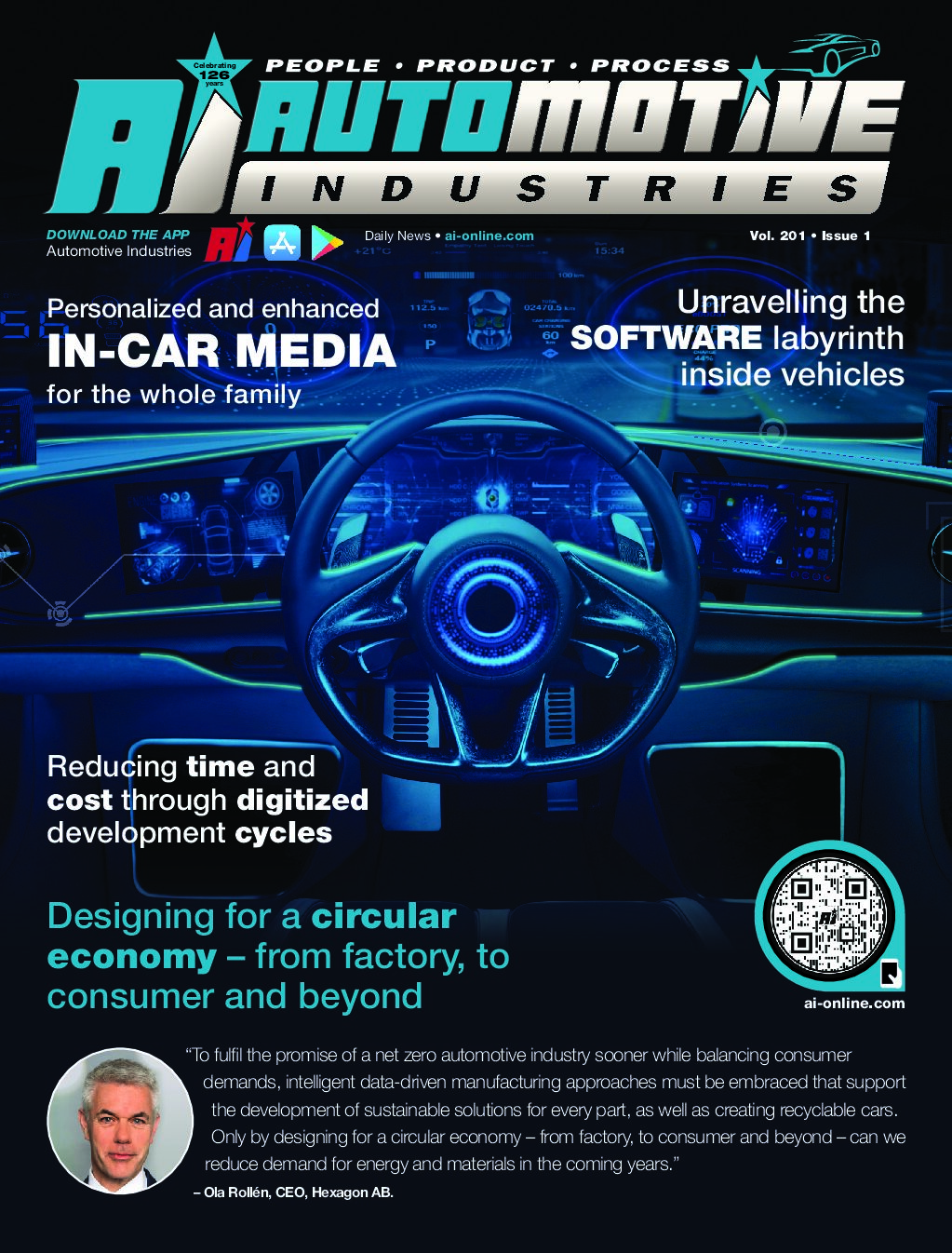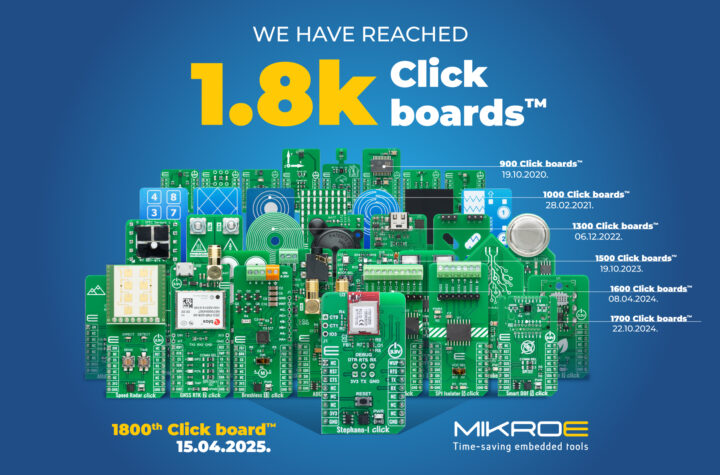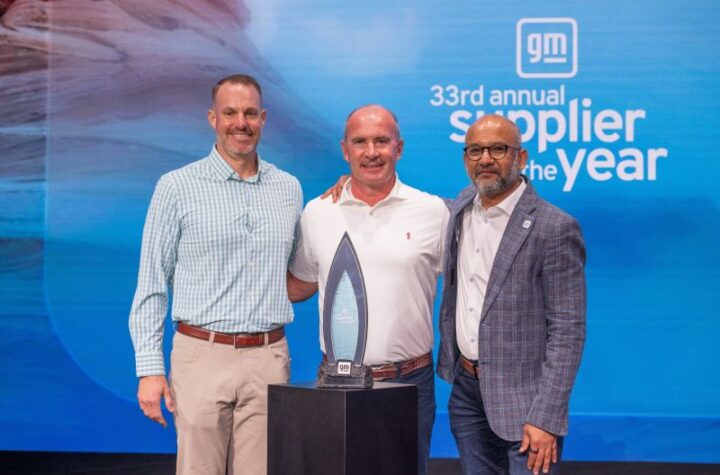
HxGN Live Global, a bi-annual, flagship conference, was held in Las Vegas from the 20th to the 23rd of June. One of the key milestones of the event was the premier keynote from Ola Rollén, Hexagon President & CEO, who opened HxGN Live for Hexagon Manufacturing Intelligence. The keynote was titled, “What Stands in the Way Becomes the Way”, and it set the tone for the conference with a message of resilience, responsibility and thought leadership. The focus was on moving forward in a world radically changed by the COVID-19 pandemic and seizing the opportunity to create a new paradigm where sustainability and profitability can coexist.
HxGN LIVE Global 2022 Keynote – What Stands in the Way Becomes the Way
Rollén said that he believed that the secret to creating the next era of sustainable business lies in the responses seen around the world when life and business completely shifted in 2020. While small businesses failed catastrophically during the 2008 financial crisis, he noted, they grew and thrived in the same timeframe during the early pandemic. The restrictions of the pandemic became the key to the creative solutions that arose from it – what stood in the way became the way, and the same could be said for the ongoing struggle to incentivise sustainability during a crucial moment in humanity’s history.
“The lockdown happened, and human activity ground to a halt… In some city centers around the world, emissions were reduced by up to 80%,” Rollén said, noting the massive drops in emissions by countries like Brazil, India, and even the United States. But the answer to the climate issue, he assured the attendees, was obviously not to lock us all at home forever. This, he said is the key – systemic, sustainable change by enriching human activity and industry through technology, rather than stopping it. Humans, he says, are best at creative, purposeful and fun tasks, while the mundane, repetitive and dangerous lead to the errors and waste that have placed the planet in peril.
“This happened on our watch,” Rollén said, in a press release. “We do not want to go down in history as the CO2 generation, the generation that polluted this planet and destroyed it.” Doing this, he said, will require another inversion – getting accountability for climate impact out of industry’s way, and making it the way forward.
The keynote was followed by talks by Hexagon CTO Burkhard Boeckem and Erik Josefsson, CEO of Hexagon’s sustainability venture R-evolution “Welcome to the New Reality: Where the metaverse meets business”. The focus of this talk was how every business is facing an enormous technological shift towards universally accessible digital realities that can autonomously leverage the vast amounts of data available to us. Hexagon’s focus has always been on realising the full potential of this opportunity. Rooted in reality, the potential is where the metaverse meets business – empowering a global network of spatially organised, predominantly 3D content with the intelligence and accessibility needed for use in any human endeavour.
HxGN LIVE Global 2022 Keynote – Welcome to the New Reality: Where the Metaverse Meets Business
The first Manufacturing Intelligence keynote “The Day the Lights went out on Manufacturing” was presented by Paolo Guglielmini, Chief Operating Officer, and Parth Joshi, Chief Product and Technology Officer with additive supercar manufacturing trailblazer Kevin Czinger, CEO, Divergent and technology leader, Aleš Holeček, CVP Office at Microsoft. The main topic of the keynote, was how the historic manufacturing disruption of the past 2 years had provided a mandate and necessity for new ideas and innovation.
The three day event included guided tours through the latest digital reality technologies from the industries Hexagon serves, from smart farming to autonomous mining, its R-evolution sustainability projects or smart cities. This was followed by a virtual smart factory tour session, where Hexagon site managers took visitors through Hexagon’s various technologies that help make manufacturing more sustainable and autonomous.
The second Manufacturing Intelligence keynote “How leading brands optimise quality processes to deliver consistently high quality” focussed on Hexagon’s new quality capabilities thanks to its recently-acquired partner, ETQ, and electric train manufacturer, Wabtech. These include smarter manufacturing approaches to bring the next generation of electric vehicles to market in a fraction of the time without costly surprises, and help to scale up production of batteries, fuel cells, drivetrains and assembly.
The three day event, was a flurry of announcements from Hexagon – such as the introduction of the all-new, next-generation Leica BLK360, which dramatically advances reality capture by delivering two of the most sought-after necessities: speed and efficiency. Hexagon said in a press release that the BLK360 accelerates Hexagon’s portfolio of sensor-software systems, which form the basis for creating Smart Digital Realities by fusing the digital and physical worlds, in real-time.
Combined, the new scanning and imaging technologies onboard the BLK360 enable extremely fast and highly accurate reality capture workflows, speeding up every step of the process. Depending on project scope and size, a BLK360 user could save days or weeks of precious time with rapid scanning, pre-registered data, and high-speed transfer to preferred software workflows. BLK360 data can be automatically uploaded to HxDR, Hexagon’s cloud-based reality capture platform where users can build their own Smart Digital Realities.
HxGN LIVE Global 2022 Keynote – Sustainability: The Elephants in the Room
At the event, Hexagon’s Mining division introduced the Power of One platform – a holistic, life-of-mine smart solution connecting sensors, software, infield apps and cloud-ware. According to a company release, Nexus is the foundation for Hexagon’s new solution offerings in the smart manufacturing space going forward. Today, it is capable of leveraging Hexagon data sources from across the vast portfolio; connecting hundreds of Hexagon design and engineering, production and metrology software tools and unlocking new insights from metrology devices and connected machines. Additionally, first-in-class cloud-native visualisations and data management solutions such as HxGN Metrology Reporting and Material Center have been built as cloud-native connected applications, and will be connected through Nexus.
“The Power of One platform is a landmark enabler for next-generation autonomy,” said Nick Hare, Hexagon’s Mining division President in a press release. “It offers mines a uniquely intelligent approach based on open architecture to autonomously connect key mining ecosystems, such as exploration, planning, drill and blast, material movement and mine monitoring. “It’s the scalable, platform-agnostic answer to challenges previously addressed by point solutions and multiple vendors.”
Another exciting launch from Hexagon was from its Manufacturing Intelligence division – called Nexus. It is an open platform for smart manufacturing, which promises to revolutionise how technology professionals collaborate and innovate. According to the company, Nexus will enable real time data sharing between different design, simulation and production applications. It will connect different applications to form workflows, and combine technologies to develop unique solutions to engineering and manufacturing problems, from concept to delivery. It will empower cross-functional teams to leverage fragmented digital data by improving visibility and connectivity, and help them gain unprecedented insight, bring their ideas to life faster, and produce higher quality results.
Hexagon is also developing purpose-built solutions through the platform that combine multiple technologies to help users to improve productivity and digitally optimise complex processes and workflows. One example is a “ready-to-go” workflow for 3D printing an optimised reverse-engineered part that could be used, for example, to streamline the repair of grounded aircraft components. This workflow connects data from a 3D laser scan to Hexagon products such as RECreate, MSC Apex Generative Design, Material Center and Simufact Additive, as well as connecting to a third-party market-leading application called CADS Additive to significantly improve productivity and enable rapid collaboration to address production issues.
In line with Hexagon’s vision for a sustainable future, Hexagon’s Safety, Infrastructure & Geospatial division and Fujitsu Limited announced at HxGN Live Global that they will partner to accelerate the development and promotion of use cases to solve societal challenges and contribute to the realization of the ‘Trusted Society’ — a sustainable, resilient place where people can live together in peace and prosperity.
What this means is that the two companies will work together to provide joint use cases leveraging digital twin technologies and solutions from both companies, including IoT sensors, data processing, AI analysis and advanced data visualization in the cloud and high-performance computing infrastructure. The partners will deploy these technologies to develop joint solutions that deliver richer information and deeper insights to customers in government, the public sector, transportation and utilities to help reduce emissions, increase safety, optimize operations and more.
“Cities are playing a leading role in solving global challenges, from addressing climate change to eliminating traffic fatalities,” said Steven Cost, president, Hexagon’s Safety, Infrastructure & Geospatial division in a press release. “Our partnership with Fujitsu can help cities put data to work to solve these pressing problems and meet sustainability and safety goals.”
And while Hexagon is keen to improve life on earth, it also its sights set on space. Hexagon/NovAtel, a leader in assured positioning, navigation and timing (PNT), signed an MoU with Xona Space Systems to collaborate in the PNT development of Xona’s new Low Earth Orbit (LEO) constellation this May. LEO constellations offer a new avenue of assuring PNT by providing stronger signals with satellites closer to the Earth and improved positioning accuracy with rapidly changing geometry. Additional constellations and a larger number of available satellites improves visibility in cases where parts of the sky are obstructed by buildings and other obstacles. Also, as the threat of unintentional or malicious jamming and spoofing increases, it becomes important to consider alternative sources of PNT and resiliency methods. NovAtel, part of Hexagon, is a global technology leader, pioneering end-to-end solutions for assured positioning for land, sea, and air. NovAtel designs, manufactures and sells high precision positioning technology developed for efficient and rapid integration. “This agreement accelerates the future of alternative PNT,” said Sandy Kennedy, vice president of innovation at Hexagon’s Autonomy & Positioning division in amy 2022 press release. “Our collaboration will demonstrate the complete assured PNT ecosystem that Xona has envisioned and NovAtel is very excited to be part of.”
“Precise and robust PNT forms the foundation for safe operation of modern applications such as automotive and autonomy,” added Brian Manning, CEO of Xona in the same release. “We are thrilled to be collaborating with NovAtel to demonstrate the benefits that our combined technologies can bring to these markets and many more.”
Hexagon AB is a global leader in digital reality solutions, combining sensor, software and autonomous technologies. The company focus is to put data to work to boost efficiency, productivity, quality and safety across industrial, manufacturing, infrastructure, public sector, and mobility applications. Hexagon’s technologies help companies across various industries with the automotive industry being a major customer of the company’s technologies. Research has shown that Hexagon technology touches 95% of all cars produced every year. Independent research into electric vehicle (EV) development has found that most automotive companies are more focused on improving electric car range and reducing costs than improving the vehicles’ carbon footprint, despite mounting scrutiny of their hidden environmental impacts.
“Our research reflects a welcome recognition by the auto industry that sustainability involves more than merely reducing road emissions, revealing an understanding of the whole-lifecycle manufacturing and material impact of vehicles. However, it also shows that despite this knowledge, car makers are feeling more pressure to compete for consumer sales than to ensure EVs are able to fulfil their core purpose of reducing the environmental impact of road transport,” said Ignazio Dentici, VP Global eMobility Industry for Hexagon’s Manufacturing Intelligence division.
Hexagon’s smart manufacturing technologies provide a number of solutions for eMobility providers to optimise and validate battery designs using CAE simulation, ensure robust battery manufacturing processes with process simulation and execution tools, and verify components and battery systems through non-contact inspection and non-destructive testing techniques.




More Stories
ABC Technologies Completes Acquisition of TI Fluid Systems; Combined Business Will Rebrand as TI Automotive
MIKROE Launches 1800th Click board: Stephano-I Click delivers WiFi and Bluetooth® LE connectivity for reliable IoT connectivity
Worthington Steel named a GM Supplier of the Year winner in General Motor’s 33rd annual Supplier of the Year awards